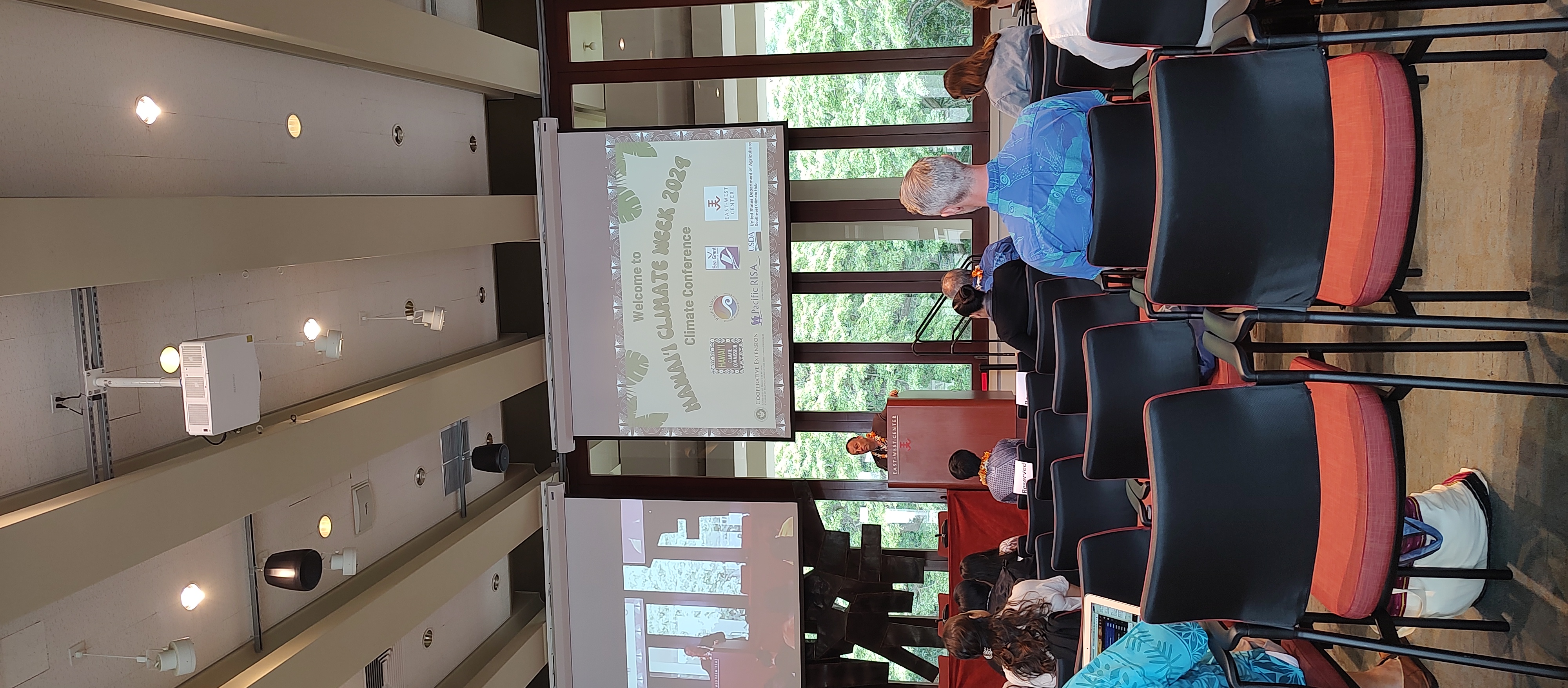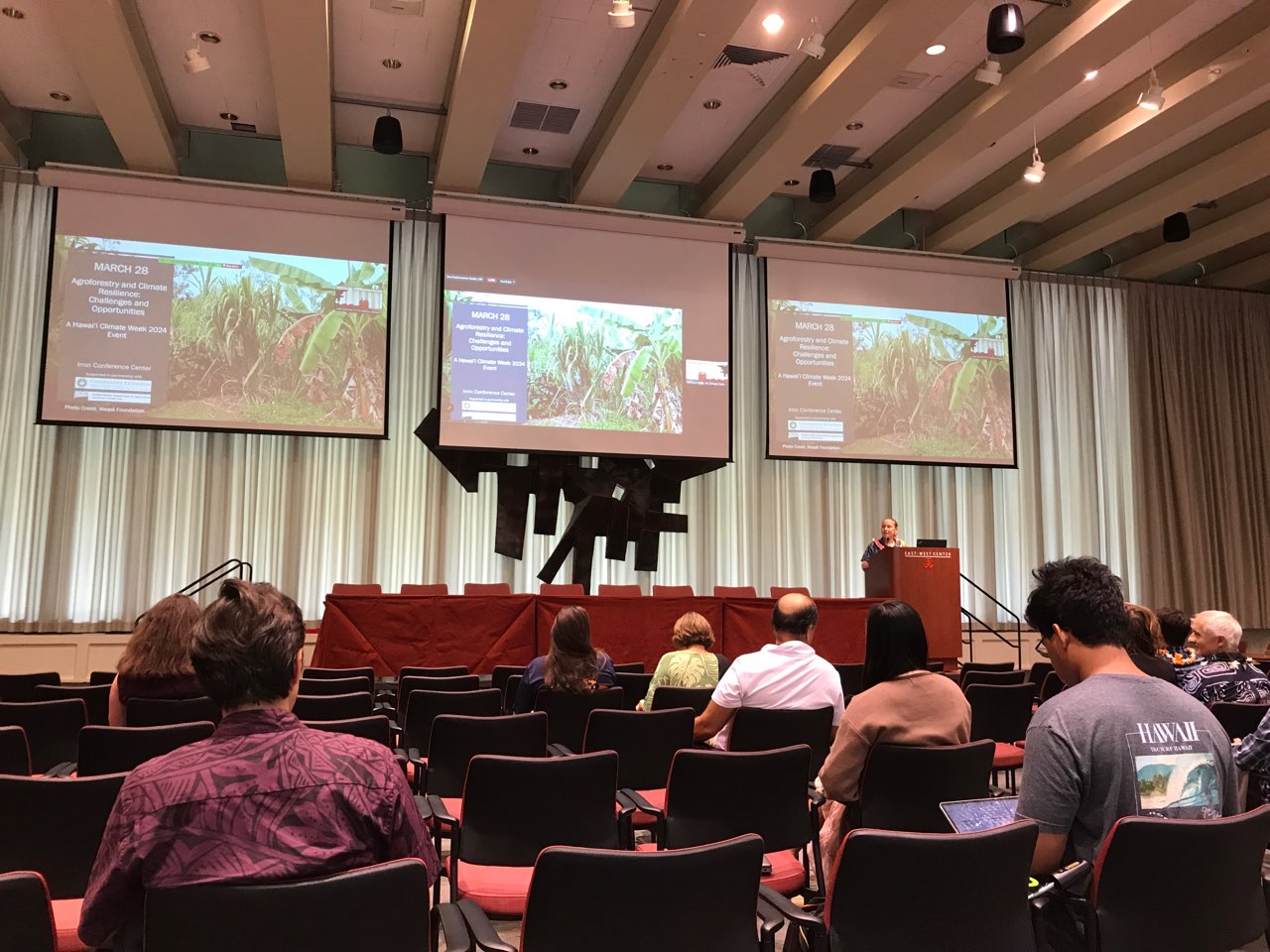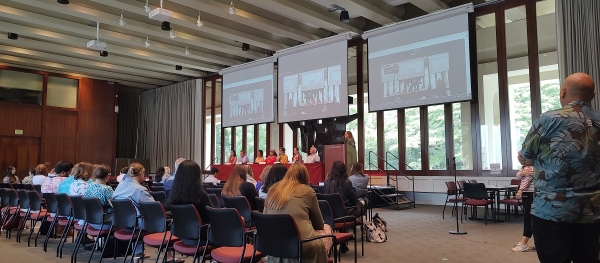
Hawai‘i Climate Week, March 23-31, 2024, was hosted by the Hawai‘i Climate Change Mitigation & Adaptation Commission and supported by the USDA Southwest Climate Hub and many co-convening partners including the College of Tropical Agriculture and Human Resources at the University of Hawaiʻi at Mānoa, University of Hawaiʻi Sea Grant, US Global Change Research Program, and Pacific Islands Climate Adaptation Science Center. The events began with Malia Nobrega-Olivera and a recognition of place, and followed with a powerful call to action from youth speaker Mason Fong, and remarks from Governor Green. This opening set the stage for a venue dedicated to addressing the unique climate challenges and opportunities in Hawai‘i.
The first day of the conference featured the rollout of the Fifth National Climate Assessment and a discussion with the NCA5 author panel. Dr. Jane Lubchenco, Deputy Director for Climate and the Environment with the Biden-Harris Administration, then presented virtually and emphasized the urgency of climate change and the vital role of the National Climate Assessment in communicating these impacts. We then launched the state’s new Climate Action Plan (CAP), which featured critical testimonies from Lahaina residents Archie Kalepa and Jackie Keefe on the importance of climate mitigation and adaptation solutions in the context of the devastating Maui fire.
The second day kicked off with a Graduate Scholars Symposium showcasing innovative research by upcoming environmental leaders from across the Pacific Islands region. Talks spanned topics mauka (mountainside) to makai (ocean side) and concluded with a luncheon networking session.
Finally, we rounded off the events with a session on “Agroforestry and Climate Resilience: Challenges and Opportunities” co-hosted by the USDA Southwest Climate Hub and College for Tropical Agriculture and Human Resources. This session brought together a diverse group of agroforestry mahiʻai (practitioners), state and federal agency representatives, academics, and students to foster knowledge exchange and explore the role of agroforestry in climate resilience. The first half of the session led with a Keynote Dr. Noa Kekuewa Lincoln, who directs the Indigenous Cropping Systems Laboratory, about the historical importance of agroforestry to resilience, and the avenues for the future. Additional talks by Akaka Foundation Postdoctoral Fellow, Gina McGuire, and University of Hawaiʻi Master’s students Destiny Apilado and Anna Ezzy, followed which focused on the importance of agroforestry for connection to place and social-ecological resilience, as well as issues of historical and current inequities around the USDA related barriers to agroforestry implementation in Hawai'i, and possible ways forward.

The second half of the session featured two panels, the first with mahiʻai who spoke on some of their motivations, challenges, and successes in practicing ‘Ōiwi agroforestry in Hawai'i. The second panel featured state, Department of Land and Natural Resources Division of Forestry and Wildlife, and federal, USDA Natural Resources Conservation Service, representatives who spoke on some of the financial and technical assistance programs available for both urban and rural agroforestry in Hawai'i.

The following day an agroforestry community workday at Puʻulani, Kākoʻo ʻŌiwi was led by University of Hawaiʻi at Mānoa PhD student Maile Wong, and Forest Service partner, Zoe Hastings Silao. Here, participants engaged directly with agroforestry and had the opportunity to learn more about the place they were helping to steward and the importance of community-based and led agroforestry for climate resilience.

